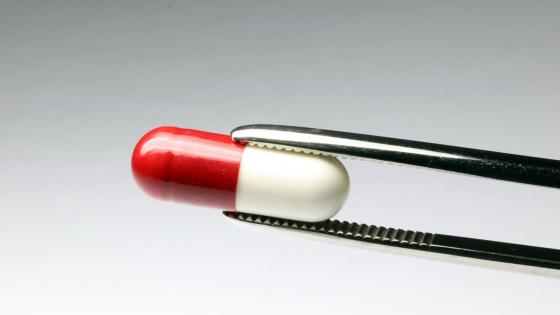Drug development is all set to become considerably faster, sharper, and better in times to come. With a perfect innovative idea developing around the combination of Big Data, ingestible and wearable sensors, and monitors, with AI-augmented data analytics, there is hope.
According to the authors of a piece published in the Harvard Business Review, on May 2, “Digital technologies will allow researchers to measure the health data of clinical trial participants on a regular basis during the normal course of daily living without significantly disrupting them. They will make it possible to more accurately assess an individual’s health as well as how the study drug is performing.”
They also added that these developments would benefit from inviting subjects to participate in the study. Calling this an ongoing project to monitor physiological data, the authors are hopeful that this field would do a lot more to advance healthcare and personalized medicine.
They also wrote, “By lining information about an individual’s genotype and phenotype, the “continuomics” can lead to individualized diagnoses and therapies on a scale previously unimaginable.

The Advent of Digital Technologies
Digital technologies have been an integral part of life and living. Today, it is ubiquitous, cost-effective, and efficient. Nonetheless, it is still underutilized in the field of healthcare and medicine. The latest technologies such as wearable health sensors, monitors, and ingestible devices that measure everything – the number of steps you walk to heart rate, blood pressure, and drug interaction – are potential enough to disrupt all aspects of healthy living, including drug development. These devices are specifically designed to revolutionize the process of having new and innovative drug therapies to improve sample collection, measurement, and health data assessment.
These advanced technologies are built on artificial intelligence (AI) and machine learning and are in use to help healthcare providers as well as patients to remotely manage their chronic health conditions like diabetes and hypertension.
In fact, consumers are investing in these devices for weight loss, better sleep, and increased daily activity. It is now time to apply these technologies for drug development to gather data and analyze further. The process can be done more frequently, accurately, and efficiently involving trial participants and actionable information. With this advanced data analytic capabilities, it may be possible to interpret better results than humans who are usually limited by preference, experience, knowledge, or simply biased.
Continuomics Makes Things Possible
With digital technologies, researchers can now measure health data of the participants engaged in clinical trials, regularly, without disrupting their daily life. They would also make accurate health data assessment possible. During the course of the research, it would be possible to measure the performance of a drug. They would reduce the number of doctor visits significantly, which is otherwise difficult for working individuals and the common reason for subjects dropping out of studies.
When monitored regularly, in real-time, an individual’s response to drug therapy can be determined. It is possible to record how the drug affects disease and interacts with the overall health of an individual. Going by history, subjects involved in a study have been tested and evaluated specifically to derive accurate results. However, those scheduled evaluations provided clinicians with just one fragment knowledge of how the drug affected the disease and interacted with the health of a subject.
A clinical study aims to obtain accurate, useful and meaningful data. Hence, the frequency of data measurement has to be determined by the best understanding of underlying biology. Measuring frequently required subjects to be tested unobtrusively to ensure their daily lives are not disrupted and to reduce the anxiety of meeting a doctor. With the help of digital technologies, it is possible to change the frequency of collecting and assessing important clinical measurements and improve the accuracy of the measurements to deliver resulting conclusions.
Digital technologies are also efficient enough to allow researchers to detect any adverse event to drugs much earlier. The events include drug reactions, medication errors, overdoses, allergic reactions, etc. The devices are also sound enough to enable researchers to get better insights into the events when they occur.
In addition, the devices allow users to measure the indicators of the quality of life, such as sleep quality and daily activity. This feature has a broad implication in modern health care. It supports informed decision-making, improves patient engagement, and enhances a personalized approach to caregiving. The data is essentially helpful for creating a better understanding of the link between the cost and overall value of drugs.
In a virtual clinical trial setting, researchers would be able to follow adherence to any study protocol to understand whether a patient is actually taking drug therapy as prescribed, or not. This is crucial, as nonadherence would create a false or misleading report, thus affecting the safety as well as the efficacy of the drug being investigated. Smartphone apps and text messaging are proven more effective ways of giving a reminder to patients when it is time to take the medication, provide necessary information about the condition, and schedule a doctor’s appointment at a convenient time.
sepStream® maintains the unique quality of delivering solutions par excellence. With the most sophisticated range of imaging tools, the company provides fast and futuristic services in healthcare.